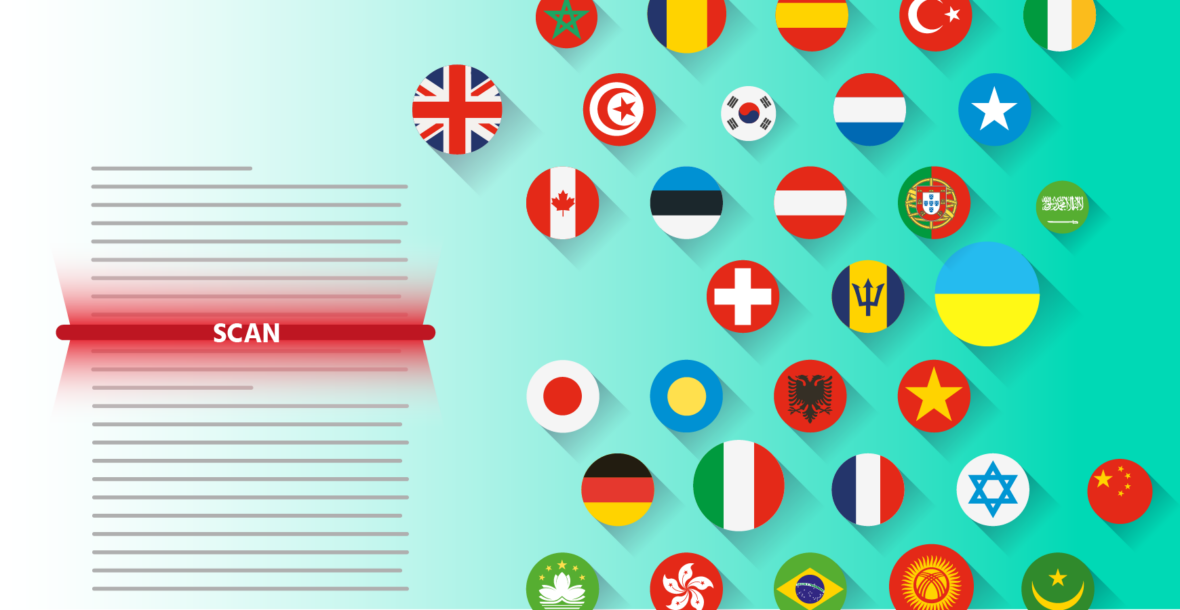Author: Gesche Loft, Content Writer, Ultimate
High quality, native language support is key for personalization and global scalability. In a recent study, Common Sense Advisory found that 67% of consumers preferred navigation and content in their language, and that 75% said they were more likely to return to a brand offering customer care in their language, specifically.
It’s no surprise, then, that big companies have begun localizing their customer service: A report by Smartling has found that there was a positive relationship between the language accessibility of major retailers Zara, Topshop, Uniqlo, and H&M and their five-year growth rate.
Now you might expect big brands to go global effortlessly, as they have the resources at hand to scale up support teams and outsource localization. But most recently, we at Ultimate have seen smaller, up-and-coming businesses take the leap – and succeed. Take TransferGo, one of ours and Helphouse’s customers. Within only a few weeks, this fast-growing, UK-based Fintech startup was able to provide their customers across Europe best-in-class speed and value in 7 languages.
The secret to their success?
Achieving a global brand presence has become easier than ever thanks to AI-powered, multilingual support. Here are four reasons why.
1. Faster customer service
Multilingual chat and ticketing automation works 24/7. That means CS teams no longer need to worry about hiring live agents to cover a variety of languages and time zones in real time.
“We have the world’s largest selection of vacation rentals, so last year we had guests contact us from 120 countries around the world,” recalled Danielle DeLozier, Director of travel company Guest Relations, at our recent event on going global with multilingual automation. “Our new virtual agent, Sunny, has really helped us maintain that personalization at all hours of the day.”
2. More accurate customer service
Today, high-quality, native level automated support is available in any language without the need for clunky translations. That’s because current, AI-powered virtual agents are are powered by what is called Natural Language Understanding (NLU) technology – It’s a form of deep learning that allows an AI model to dynamically learn from natural language rather than relying on pre-programmed keywords to identify user intents and reply to them.
3. More efficient customer service
Even for companies already leaning on automated support, it has become that much easier to scale. Until very recently, using multilingual virtual agents still required building, training, and monitoring one bot per language. But thanks to the newest developments in multilingual conversational AI, you can now deploy not one, not two, but hundreds of languages within one single virtual agent – 109 using Ultimate’s new technology, to be exact. They’ll be able to converse in all of them, even if they’ve only been trained in one or two.
For our customers, this has meant saving 75% of effort when adding replies in new languages to their virtual agent platforms. It has helped them quickly readjust to industry-specific changes accelerated by Covid-19. And it has lowered the threshold for global expansion, meaning businesses no longer need to funnel all of their resources into more brick-and-mortar stores, bigger support teams, or additional bot managers anymore.
What’s more, our customers that integrated Ultimate into their CRM were also able to optimize their multilingual customer service by further personalizing it.
4. A personalized customer experience
By integrating with a CRM like Zendesk, multilingual automation can provide a wealth of opportunities for personalization. For example, you can implement automatic language detection, adjust support and promotional content to your customers’ region, and facilitate seamless handovers between your virtual agent and human support team based on country settings and device type. “We just want to be as close as possible to the customers, whether through our agent or the bot,” says Sophie Werner, Automation Manager at ecommerce jewelery boutique Purelei, which serves their customers in German, English, French, and Italian using Ultimate and Zendesk.
As a Zendesk premium partner, Helphouse can help you optimize your Zendesk integration to successfully scale your support without sacrificing data security.
